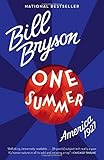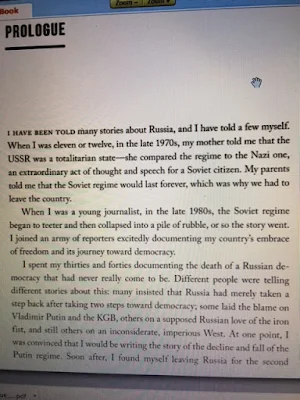Presidência brasileira do Mercosul
Rubens Barbosa
O Estado de S. Paulo, 26/12/2017
A51.ª
edição da reunião de cúpula dos chefes de Estado do Mercosul e Estados
Associados foi realizada em Brasília na semana passada. O Mercosul equivale
hoje à quinta economia do mundo, com produto interno bruto (PIB) de US$ 2,7
trilhões.
Mais
de 10% das exportações brasileiras têm como destino os demais sócios do bloco e
84% delas são produtos manufaturados. As trocas comerciais no Mercosul (US$ 38
bilhões – 2016) são hoje 8,5 vezes maiores do que as registradas no ano da
fundação do bloco (US$ 4,5 bilhões – 1991).
A cúpula
de chefes de Estado encerra a presidência pro tempore exercida pelo Brasil
durante o segundo semestre de 2017. Em vista dos resultados alcançados, pode-se
dizer que a reunião presidencial foi uma das mais eficazes e produtivas dos
últimos anos. Nesse período, foram realizadas cerca de 300 reuniões dos órgãos
decisórios e especializados do Mercosul, tratando de temas como comércio,
regulamentos técnicos, contratações públicas, grupo de monitoramento
macroeconômico, direitos humanos, justiça, desenvolvimento social, saúde e
educação. Com esse esforço se atualizou a agenda de trabalho do bloco, que
voltou a tratar de assuntos relevantes para o intercâmbio comercial e de
questões novas e urgentes.
A cúpula
de Brasília consolidou o fortalecimento do Mercosul como instrumento de
integração capaz de produzir resultados concretos em benefício das sociedades
da região, com base nos pilares presentes quando da criação do bloco:
integração econômico-comercial, democracia e direitos humanos. O grupo retoma a
sua vocação original de regionalismo aberto e busca tornar-se cada vez mais uma
plataforma de inserção competitiva de seus integrantes na economia global. Com
isso os presidentes decidiram acabar com a retórica bolivariana e dar
prioridade a uma agenda reformista e pró-mercado.
Sob a
coordenação brasileira foram reiniciadas discussões de temas que não foram
tratados nos últimos anos, como serviços, comércio eletrônico, facilitação do
comércio, pequenas e médias empresas e o interesse do consumidor nas matérias
de comércio exterior. Foi assinado o acordo de compras governamentais entre os
países-membros. Novos temas foram introduzidos no programa de trabalho do bloco
e há disposição de avançar em setores como questões regulatórias, comércio
eletrônico, bens de informática e o desenvolvimento de uma agenda digital, com
a criação de um grupo que deverá apresentar plano de ação sobre esse tema no
primeiro trimestre de 2018. Modernizou-se o mecanismo de elaboração e
modificação de regulamentos técnicos do Mercosul, em discussão desde 2010, que
permitirá alinhar o bloco aos mais avançados padrões e práticas internacionais,
em benefício dos cidadãos, dos consumidores e das empresas.
Nesse
período, foi também adotado um plano de ação para o fortalecimento das áreas
comercial e econômica, cuja execução levou a melhorias efetivas na fluidez do
comércio regional, e foram reiterados os compromissos de evitar restrições ao
comércio entre os países, com a diminuição substantiva de 86% dos entraves ao
comércio (de 78 medidas restritivas foram eliminadas 67) entre seus
integrantes, fruto de um esforço de fortalecimento do mercado interno.
O Brasil
apresentou projetos para Iniciativas Facilitadoras de Comércio e Protocolo de
Coerência Regulatória, que terão continuidade na presidência pro tempore
paraguaia. Foram aprovados o tratamento do tema de proteção mútua de indicações
geográficas, que também terá sequência na agenda do bloco, e o Acordo sobre
Direito Aplicável em Matéria de Contratos Internacionais de Consumo, que
estabelece critérios para definir o direito aplicável a litígios dos
consumidores em suas relações de consumo.
Do ponto
de vista político, não menos importante, também houve avanços, como a aplicação
da cláusula democrática à Venezuela, cada vez mais autoritária.
Houve
compromisso de continuar na busca de soluções para os temas ainda pendentes,
como a decisão de incorporar plenamente ao regime jurídico do bloco os setores
automotivo e do açúcar, e também a tentativa de corrigir algumas recaídas
protecionistas, como a imposição pelo Uruguai de uma sobretaxa às importações
que, na prática, estabelece uma tarifa externa diferenciada contra as regras do
Mercosul.
Durante
recente encontro na Argentina, os negociadores do Mercosul e da União Europeia
não chegaram a um acordo para que fosse feito um anúncio político a respeito do
progresso e da finalização das negociações em 2018. Agora em meados de janeiro
os entendimentos técnicos devem prosseguir, já incorporando as decisões de
incluir 90% do intercâmbio comercial dos dois agrupamentos e reduzir o
cronograma de desgravação para dez anos. Os presidentes reafirmaram o empenho
do Mercosul na conclusão, no mais breve prazo possível, de um acordo ambicioso,
abrangente e equilibrado, em todas as suas dimensões. Espera-se que a União
Europeia possa melhorar as ofertas de cotas para carne e etanol, de modo a
permitir um rápido avanço nos entendimentos, superando a oposição de alguns membros
europeus.
A
disposição de celebrar acordos com outros países e blocos foi reafirmada com a
disposição de avançar nas negociações com a Associação Europeia de Livre
Comércio (Efta) e nos entendimentos com os países da Associação de Nações do
Sudeste Asiático (Asean), bem como nas negociações com a Índia, o Marrocos e a
Tunísia. Foi destacada, ainda, a perspectiva de lançamento de negociações com o
Canadá e a Coreia do Sul.
A partir
de 1.º de janeiro de 2018 o Paraguai assume a presidência pro tempore do Mercosul
e a tendência é que será dada continuidade a essa nova agenda apoiada pelo
Brasil.
Bloco
troca a retórica bolivariana por uma agenda reformista e pró-mercado
PRESIDENTE
DO CONSELHO DE COMÉRCIO EXTERIOR DA FIESP











